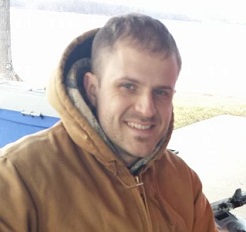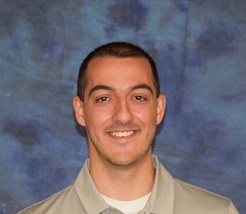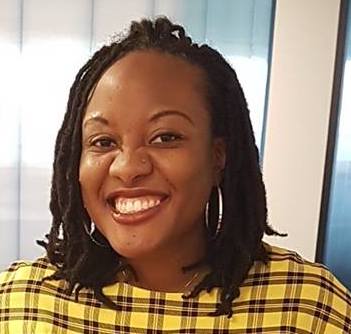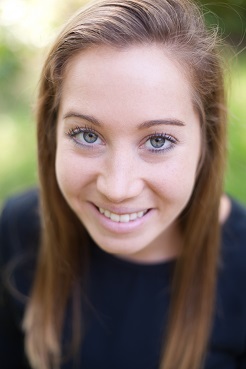
Andrew Dennhardt
Andrew Dennhardt is a dual-Ph.D. student in the Department of Fisheries and Wildlife and Ecology, Evolutionary Biology, and Behavior Program at Michigan State University. His primary research interests focus on species' distributions, individual animal movements, group demography, and environmental factors, especially how each shapes fisheries and wildlife population and community dynamics in space and time. Employing novel tools in quantitative ecology, Andrew enjoys investigating the abundance and distribution of species along with the organization and maintenance of their communities. Andrew is active in the Fisheries and Wildlife graduate student community, and he also serves as a statistical consultant at the MSU Center for Statistical Training and Consulting. His dissertation research includes work with multivariate data on: (1) fish communities in the Great Lakes, (2) birds and groundcover plant communities in managed forests, and (3) bird communities and species' distributions and population dynamics in North America. Following his tenure at MSU, Andrew plans to work as a wildlife research biologist at a natural resource agency in the U.S. government. Please visit Andrew's personal website at https://andrewjdennhardt.weebly.com to learn more about his research, publications, and more.

Ryan LaRose
Ryan LaRose is a second year PhD student in the Department of Computational Mathematics, Science, and Engineering, also pursuing a dual PhD in physics. His research area is in the theory and applications of quantum computing. In particular, Ryan works on developing quantum algorithms for applications ranging from the simulation of many body quantum physics to machine learning. During the summer of 2018, Ryan was a research fellow in the first Quantum Computing Summer School at Los Alamos National Laboratory, and in the summer of 2019 he will be interning as a Quantum Computing Applications Researcher at IBM.
At Michigan State, Ryan started the Quantum Information and Computation (QuIC) Seminar with graduate students Nick Valverde, Justin Lane, and Ben Hall. In this weekly seminar, they discuss quantum computing topics to a broad audience of undergraduates and professors. In general, they are working to create a unified research group in quantum computing at Michigan State, bringing together faculty with interests in this area, and communicating how quantum computing could enhance their algorithms. The fellowship from the COGS Disciplinary Leadership Award will be used to directly support this effort.

Molade Osibodu
Molade Osibodu is a PhD candidate in MSU's Program in Mathematics Education (PRIME). Molade taught mathematics for five years at a school in South Africa committed to developing the future generation of African leaders. Teaching at this pan-African institution inspired her research agenda where she studies if and how mathematics can be used as a tool to allow youth approach social issues with a critical lens. In her research, Molade has sought to disrupt injustice both in mathematics contexts and broadly in education conversations. In the summer of 2018, she worked with MSU’s TRIO support services by teaching mathematics to incoming college first year students in order to help them achieve success in their required mathematics courses. Also in the summer of 2018, she served as assistant camp director for the summer mathematics camps hosted by MSU’s mathematics department. Lastly, she is the lead mathematics tutor at the Refugee Development Center where she support other tutors in providing quality help to refugee students at multiple high schools since the Fall of 2017.
Christine Pacewicz
Christine is a doctoral candidate in the Department of Kinesiology with a concentration in Psychosocial Aspects of Sport and Physical Activity. Her research focuses on social contributors to athletes’ motivational sport experiences (i.e., athlete burnout and athlete engagement). In the interest of promoting positive youth development through sport, the primary objective of her research is to understand how the social context influences these outcomes as well as the well-being of young athletes. Her current work utilizes a social network approach to examine how communication between teammates influences their perceptions of loneliness, burnout, and engagement. This line of research has potential to inform coaching practices, team policies, and team structure to promote positive interactions among peers in sport. Promotion of positive social interactions should foster motivation to continue sport participation, enhance psychological, social, and motor development, and increase well-being in youth.

Kerri Vasold
Kerri Vasold is a doctoral candidate in the Department of Kinesiology. Her dissertation work focuses on the tripartite relationships between recreational sports participation, health and wellness outcomes, and academic success in college students. Outside of her research, she has dedicated a great deal of her time to service, both at MSU and to her degree field. At MSU, she is a co-coordinator of the Exercise is Medicine on Campus initiative, and leads programming and events that promote physical activity as a part of daily campus culture. In the Kinesiology field, Kerri has served on the Midwest American College of Sports Medicine Board of Directors and the American College of Sports Medicine Student Affairs Committee. Additionally, she currently serves on the Research and Assessment Committee for NIRSA, the national organization for collegiate recreational sports.


